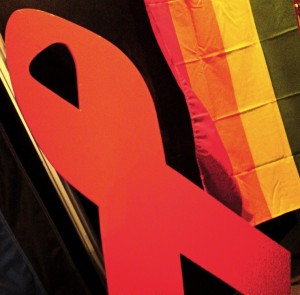By Mina Kim

While there hasn't been much research into how well undocumented Hispanic immigrants do if they are infected with HIV, a small study from researchers at Baylor adds to what's known -- and found some surprising results.
In the retrospective study researchers reviewed the cases of 1,620 HIV-positive adults at a clinic in Houston. Researchers looked at patients' health one year after they started HIV treatment and compared between groups -- African American, white, Hispanic -- with undocumented Hispanics reviewed in a separate category.
"What we found was, though they entered care with more advanced HIV," said lead researcher Thomas Giordano in reference to the undocumented Hispanics, "actually when we looked at their outcomes they did as well, if not better, than the other groups in the study."
Giordano says the study did not look specifically at why this might be happening, but did recount what is known about undocumented immigrants and overall health status. From the study:
Undocumented persons often endure formidable journeys to cross the US border and oftentimes work in physically demanding jobs once in the US [25]. Their sense of resilience and self-efficacy most likely differ from their native-born counterparts in the countries from which and to which they migrated. Studies have consistently shown more favorable health outcomes in foreign-born Hispanic patients and use terms such as the “healthy migrant effect” and “Hispanic paradox” in explaining this phenomenon [26]. Possible explanations include selective migration, less adverse health behaviors, and greater social support.
Kathleen Clanon, Chief Medical Officer at Alameda County Medical Center in Oakland, says that she finds Latinos are more likely to take their medication.